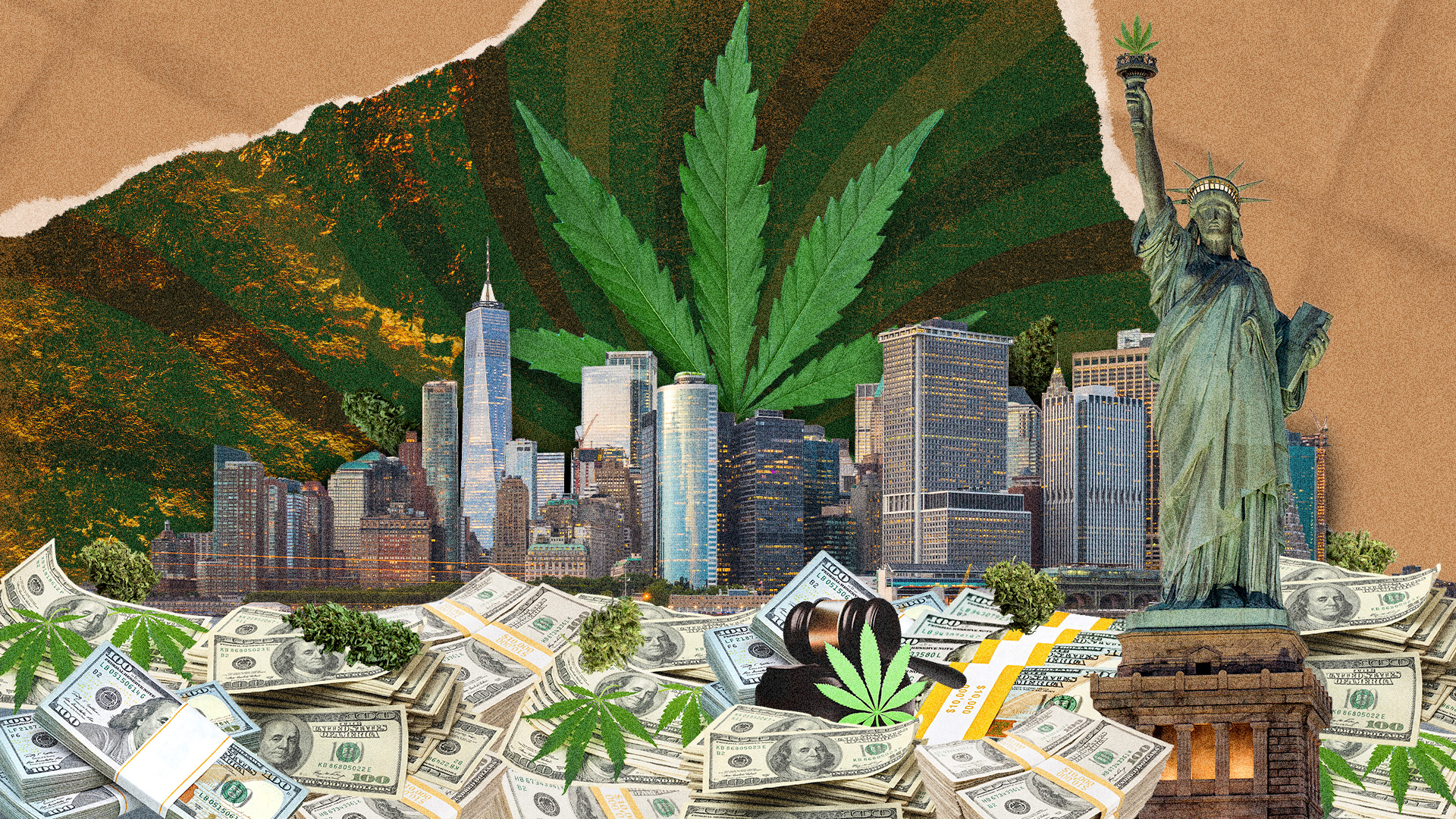New York City (NYC) consumed an estimated 62.3 metric tons of cannabis in 2023. The figure placed it at the top of The Center for Advancing Health’s cannabis consumption rankings above cities like Chicago, Denver, Toronto, and Rome.
While the victory may look impressive on the surface, a look at consumption per million residents shows that NYC is wildly underperforming. With 8.4 million total residents, NYC consumes about 7.4 metric tons of cannabis per million residents. Compare that with other recreationally legal cities like Los Angeles’ (9.2 metric tons of cannabis per million residents) and Denver (9.5 metric tons of cannabis consumed per million residents) and it’s clear that NYC should be doing much better.
So then, what’s keeping NY and NYC from reaching their full potential? We dive into the issues plaguing the state, what lawmakers are doing to fix them, and answer whether 2024 is the year that NY’s recreational market takes off.
Why NY Can’t Seem To Open Enough Dispensaries
New York legalized cannabis on March 31, 2021, with the passing of the Marihuana Regulation and Taxation Act (MRTA). Taking inspiration from recreational cannabis programs in states like Colorado, the MRTA established the Social and Economic Equity (SEE) program. New York lawmakers hoped the SEE program would ensure the state’s new market prioritized uplifting individuals from a diverse set of communities.
As part of these diversity efforts, state lawmakers mandated that 50% of all adult-use licenses go to SEE groups including:
- Individuals from communities disproportionately impacted by the war on drugs.
- Women-owned businesses
- Minority-owned businesses
- Service-disabled veterans
- Distressed farmers.
Despite its honorable intentions, the SEE program has consistently struggled to obtain funding for its applicants. In January 2022, New York State Governor Kathy Hochul announced her plans to create a $200 million public-private fund for social equity applicants. In late 2023, the state once again sought $150 million in funding for the program.
Why You Should Get Your Medical Marijuana Card
Veriheal has satisfied millions of patients nationwide by giving them access to these benefits
- Larger purchase limits
- Peace of mind
- Enhanced legal protection
- Access to higher potency strains
- Save up to 25% on cannabis purchases
- Skip the line at the dispensary
With funding issues impacting New York’s already slow recreational license application process — the state and NYC have struggled to open enough shops to meet consumer demand. The entire state of NY currently has a meager 53 dispensaries in operation. Of those 53 dispensaries, only 20 are in NYC — this includes dispensaries in boroughs like Brooklyn, the Bronx, Staten Island, and Queens. To put that number into perspective, consider that the city of Los Angeles alone has 238 dispensaries.
Will NY’s Recreational Market Bounce Back in 2024?
Without enough legal dispensaries to meet consumer demand, illicit storefronts have popped up all over New York. In New York City alone law enforcement says about 1,500 unlicensed dispensaries are in operation. In the midst of an illicit market crisis, city and state-level lawmakers are stepping up to the plate.
NYC Mayor Eric Adams responded by launching the Interagency Task Force pilot program in December of 2022. The task force is comprised of the NYC Sheriff’s Office, the NYC Police Department (NYPD), the NYC Department of Consumer and Worker Protection (DCWP), and the NY State Office of Cannabis Management (OCM). Since its conception, mayoral spokesperson Brad Weekes says the task force has seized an estimated $40.5 million in illegal products and issued over $23 million in civil penalties.
On the state level, NY Assemblymember Jenifer Rajkumar (D) introduced the Stop Marijuana Over-proliferation and Keep Empty Operators of Unlicensed Transactions (SMOKEOUT) Act on December 29th of last year. The bill seeks to allow NY municipalities to shut down unlicensed cannabis shops and seize their products. Further, the act also seeks to make the unlicensed selling of cannabis a Class-A misdemeanor.
Despite these efforts, experts remain hesitant about what 2024 will look like for NY’s recreational market. Leading cannabis market forecasting company BDSA told Forbes that: “State regulators made significant moves to address problems in the New York cannabis industry in 2023, but a limited retail landscape and stiff illicit competition have limited the market.”
As such, BDSA predicts that NY’s legal adult-use market will only make $1.3 billion in 2024. While that may seem like an impressive figure, BDSA notes that “with a 21+ population of over 15 million and a past six-month consumer participation rate of 46%,” the state is not living up to its full potential.
Author, Share & Comments








